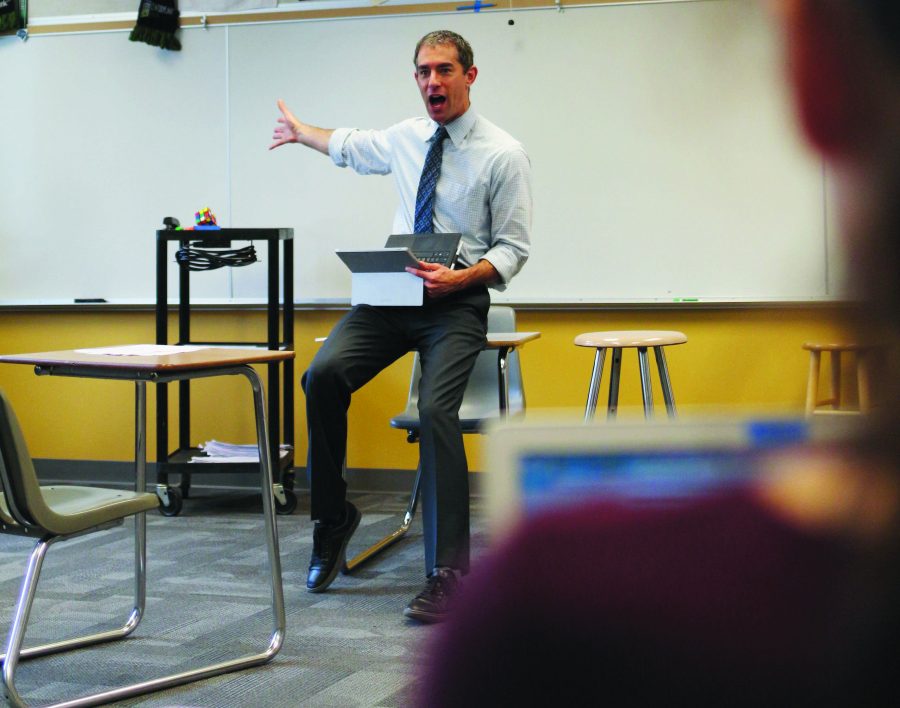Does what you call a teacher really matter?
There’s a new trend at school. No, it’s not playing Pokémon Go during retreats, (though that definitely happens). Instead, teachers, especially new teachers, have been shunning the use of traditional titles and instead have asked students to call them by their first name.
There are a few people who caught on to this trend before it became popular.
One example is physics teacher Matt Palubinskas, who was one of the first teachers at University Prep to officially use his first name.
Palubinskas claims that actually, using a first name might improve the learning in his classroom.
He said, “How can students and teachers do their best work? That happens hugely in a very comfortable environment, and what’s more comfortable than going by first name?”
Spanish teacher Matt Budzyn is a newer teacher, starting his second year at UPrep, and he prefers to use the name Mateo (because, you know, Spanish) instead of more formal Mr. Budzyn. Not only does the use of Mr. Budzyn remind him of his dad, but he believes that using the name Mateo benefits the mood of the classroom.
“I am very informal, and I do that because when kids see that informality, they are able to relax, and often give themselves permission to be themselves as well,” Budzyn said.
Nevertheless, there has been discussion on the topic of respect and authority, which using a prefix like Mr. or Ms. can sometimes command. English teacher Michael Wasserman said he asks to be called Mr. Wasserman out of habit, because when he started teaching it was necessary.
“When I started I was 24, and some of the students in my class were 21. In order to create some semblance of authority, and to put some distance between me and the student body, ‘Mr. Wasserman’ sounded more authoritative than ‘Michael,’” Wasserman said.
Freshman Caroline Woodward agrees that using a first name presents a more laid-back and less authoritative front.
On the subject of appearance, she said, “The teachers [who use first names] are less formal, and they can be more casual with their dress. They would more often wear a t-shirt and jeans instead of a nice shirt and tie.”
This observation may stem from a general stereotype of the totally lax and informal teacher, or perhaps Budzyn is a minority in that respect.
He said, “I wear a tie every day, to demonstrate my professionalism, because I don’t think that using my first name, even with students, lowers my professionalism.”
Even though Budzyn doesn’t use his last name, he admits that using last names can be a symbol of courtesy, even between teacher interactions.
“When I deal with my superiors, like for example Mr. Jaffe or Ms. Picha, I call them Mr. Jaffe or Ms. Picha. I use titles of formality for people who are my superiors as a sign of respect,” he said.
The bottom line is that whatever you may call your teachers, do so with courtesy. As Wasserman says, “It’s so much more about how students see the teacher than what they call the teacher.”
By Olivia Poolos


